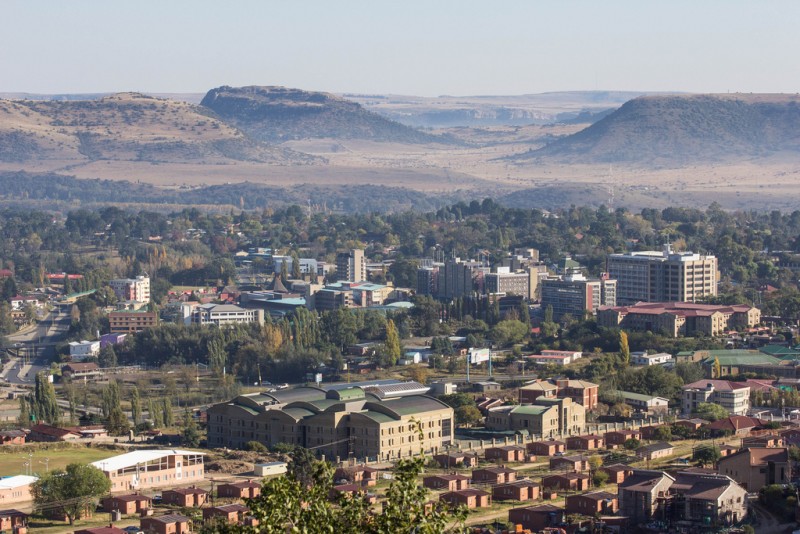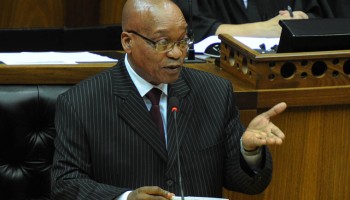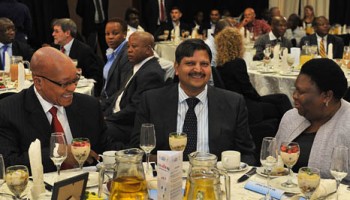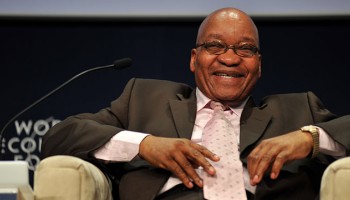Ян Си — натурализованный гражданин Лесото, известный как Джон. В маленькую страну южнее Сахары он переехал в 1990 году и с тех пор построил внушительную бизнес-империю, которая включает сеть супермаркетов, строительство, сельское хозяйство и добычу ресурсов.
14 августа премьер-министр страны Том Табане назначил его «главой спецпроектов, полномочным представителем и советником по китайско-азиатской торговой сети». Си заявил, что отказался от зарплаты и впоследствии передал часть активов своей компании жене Сяои Яо, «потому что она тоже предприниматель».
И до, и после назначения оппозиционные политики и интеллигенция обвиняли Си в злоупотреблении влиянием в высших эшелонах власти и организации схем «захвата» правительства, которые по манере исполнения похожи на махинации могущественной индийской семьи Гупта в ЮАР.
Среди яростных критиков Си посол Лесото в Эфиопии и представитель Экономической комиссии ООН для Африки (UNECA) Мафа Сежанамане.
В развернутой статье, опубликованной Центром расследовательской журналистики MNN в марте, он пишет: «Картина, которая вырисовывается на основании сделок Си, говорит о том, что это коварный человек с характерным почерком коррупционера… Си не интересует бизнес — лишь бы он был на виду и обеспечивал ему место в первом ряду на государственных тендерах. Он — безжалостный охотник на тендеры».
«Возможно, Си — главный коррупционер Лесото», — заключила Сежанамане.
Бизнесмена обвиняют в том, что он стоит за новой противоречивой политикой, касающейся торговли шерстью и мохером — крупнейшими национальными производствами.
Политика, о которой стало известно в августе, заставляет производителей сотрудничать с зарегистрированной в Лесото компанией, принадлежащей китайскому бизнесмену Гуи Ши по прозвищу Камень. Многие мелкие фермеры отказываются работать с компанией.
Критики считают, что правительственный запрет на импорт красного мяса также может быть на руку Си. Целью запрета, который вступил в силу в марте, была якобы поддержка местных производителей. Но оператором национальной скотобойни является частная компания, которая тесно связана с Си.
Бизнесмен отрицает обвинения в «захвате государства», утверждая, что у него «даже намерений таких не было».
Си в Лесото принадлежат 24 компании. Журналисты из южноафриканской организации amaBhungane, которая занимается расследованиями коррупции в политике, не смогли установить, получала ли какая-либо из них государственные тендеры, поскольку в Лесото нет централизованного архива победителей тендеров.
В интервью amaBhungane Си утверждает, что премьер-министр Табане однажды жил в его особняке в богатом пригороде Масеру Хилс Вью. Он заявил, что частично профинансировал свадьбу дочери предыдущего премьера Пакалиты Мосисили и вечеринку по случаю дня рождения бывшего заместителя премьер-министра Мотетхоа Мецинга.
Представитель Мецинга отрицает это заявление. Однако член Национальной партии басото (BNP) и замминистра внутренних дел Мачесетса Мофомобе признал, что Си спонсировал его и других членов партии. Эти заявления почти невозможно проверить, поскольку в Лесото не предусмотрено раскрытие финансирования партий.
Тем не менее Си и премьер-министр Табане состоят, по-видимому, в хороших отношениях. Премьер-министр, который ранее занимал эту должность с 2012 по 2015 год, был переизбран в июне 2017 года, когда его партия «Объединенная конвенция басото» (ABC) получила 48 из 80 мест в парламенте.
Инаугурация 79-летнего Табане состоялась 16 июня. Меньше чем через месяц он назначил советником Си, а в следующие выходные в третий раз женился на 40-летней Мессайе Табане.
Шикарное торжество, дополненное красной ковровой дорожкой, прошло на Национальном футбольном стадионе «Сетсото» в столице страны Масеру. На торжество пришло порядка 15 тысяч человек. По словам источника в партии Табане ABC, стоимость дизайнерского бело-золотого платья невесты могла составить до 70,5 тысячи долларов.
В интервью Си признал, что вложил в свадьбу от 20 000 до 30 000 лоти (1,4–2,1 тысячи долларов США). «Я не помню точно», — сказал он, отвергнув обвинения в попытке купить влияние.
Однако все тот же источник в партии утверждает, что Си оплатил свадьбу «практически полностью».
В свою очередь Си, похоже, не видит проблем в подарках. «В нашей культуре принято давать деньги людям, если они у вас есть. У нас есть традиция красного и белого конверта, — сказал он. — Если нас приглашают на свадьбу, вечеринку или другой праздник, мы приходим с красным конвертом. На похороны мы приходим с белым конвертом. В этих конвертах лежат деньги для тех, кто нас пригласил». Бизнесмен не смог вспомнить суммы, которые он подарил на свадьбу дочери Мосисили и в день рождения Мецинга.
Си также предоставил свой дом Табане после возвращения премьер-министра из добровольного изгнания в ЮАР, куда он бежал после неудавшегося военного переворота в 2014 году.
По словам Си, Табане «негде было остановиться». Китаец сдал ему дом за 490 долларов в месяц, что значительно ниже рыночной стоимости. Оппозиционные политики утверждают, что «кто-то, если не сам Си», должен был финансировать Табане.
Премьер-министр ответил на звонок сотрудников amaBhungane, но повесил трубку, когда они представились журналистами. Последующие звонки он отклонил.






